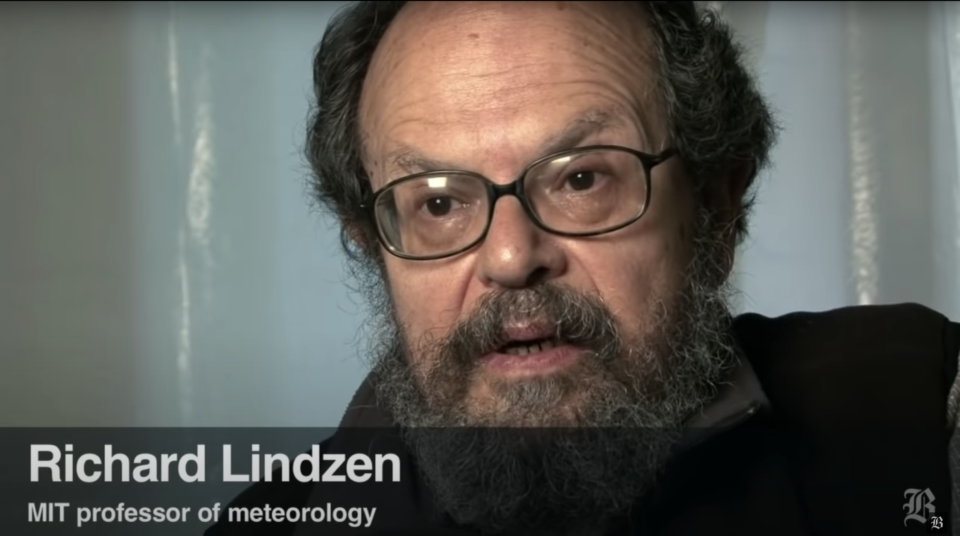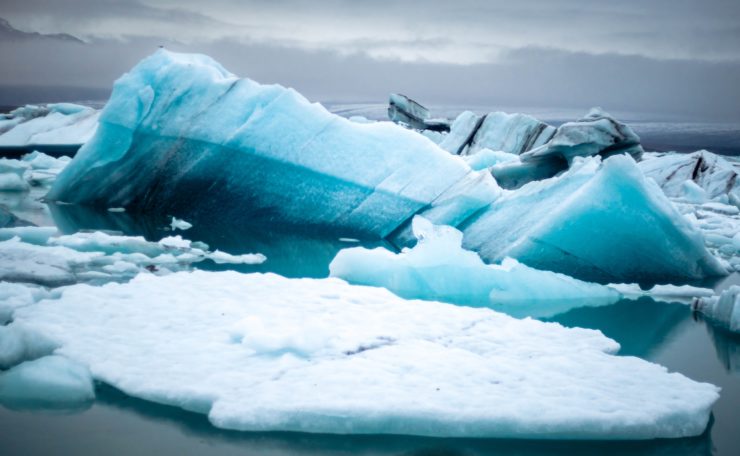Introduction
“It’s freezing in New York – where the hell is global warming?” A tweet from former President, Donald Trump, illustrates the skepticism amongst even the most informed leaders in America and the measures they will take to counter science for the purpose of supporting corporate and short term economic interests. Politicians have a lot to say about climate change, despite the fact that it is often a topic outside of their expertise, with their opinion being biased by powerful lobbies on both sides. Similarly, some scientists step out of their field of scientific expertise and make claims about climate change, countering the findings of scientists that have made a career out of the field of climate. Beginning in the early 1980s, climatologists measured an increase of global temperatures, putting a spotlight on the issue of global warming. The summer of 1988 was the hottest on record at the time and resulted in an increase of wildfires and drought in the United States. While data makes it hard to argue that the atmosphere isn’t warming, there is much dispute about whether the rising temperature is the result of an increase in the release of greenhouse gasses related to human activity or whether the warming is a product of natural variation that happens over time. A MIT professor of meteorology, Richard Lindzen featured in the video posted by the Boston Globe titled, “Global Warming: why you should not worry,” claims that the climate is always changing, and although the earth may be getting warmer, it is not necessarily a human problem and is a natural cycle of the world. These competing beliefs about whether global warming is “man-made” or natural phenomenon, whether humanity should make any attempt to counter its impact and whether a meteorologist or a politician is as credible as the prevailing views of climatologists are all critical questions that need to be answered.

“If one asks about the temperature increasing or decreasing. It’s always doing one or the other. I have no concern about that.” (0:06-0:17)
MIT professor of meteorology, Richard Lindzen is not alone in his lack of concern about whether temperatures are increasing or decreasing and position that they are always doing one or the other. In his studies at Penn State University, Hoover Institution senior fellow Terry Anderson, states that we should not worry about global warming because we have “survived many abrupt periods of climate change.” These positions that this is “natural” are challenged by NOAA and NASA, organizations who stated that the decade 2010-2019 was the hottest since they have been keeping records. Further, this data makes it difficult for many in the scientific community to accept that rising temperatures are the product of natural variation. While the climate has experienced change before, the extreme upward trend in the global average temperature, as well as the correlation to greenhouse gas emissions, make it hard to believe that this is an issue that should be overlooked and will solved by itself regardless of its cause.
Richard Lindzen, MIT professor of meteorology
Richard Lindzen, the speaker on this video, is a professor of meteorology at MIT. He is an expert in his field of meteorology, but whether this expertise translates to being an expert on the topic of climate change is up for discussion. After Richard Lindzen sent a letter to then President Donald Trump explaining that climate action is “not scientifically justified” and that it would be in the United States’ best interest to pull out of the United Nations’ Climate Change Regime, 22 of Lindzen’s colleagues at MIT signed a letter conflicting Lindzen’s views. In the letter, Lindzen’s colleagues stated that “this view is not shared by us, or the overwhelming majority of other scientists who devoted their professional lives to careful study of climate science.” This difference in opinions illustrates why it is essential to understand the credentials of the individual providing the point of view on issues as critical as climate change. Taking this a step further, according to a survey and study of AMS members, research showed that 64% of meteorologists were convinced that humans contributed to global warming in comparison to the 82% of all earth scientists. In trying to explain the reason for this difference, the authors of this study hypothesized that meteorologists tended to be more skeptical when it came to human-caused climate change because they did not refer to the expert consensus. Rather than accept the expert consensus, meteorologists were more likely to make claims based off of their own knowledge instead of either understanding the topic deeply or deferring to the experts.
“Catastrophes certainly concur, they have many causes, of which global warming being one of the least” (2:33-2:40)
Richard Lindzen suggests that the natural disasters in the world are caused by many things, the least of these being global warming and as such has very little worry about effects of climate change on the world’s environment. The greatest challenge facing scientists is establishing causation between climate change and catastrophes as there is very limited research to connect climate change and the current increase of natural disasters. However, there is correlation as we know that as greenhouse gasses in the atmosphere, including CO2, methane and nitrous oxide, continue to increase, the temperature will continue to rise. We also know that the ocean itself collects a significant amount of the heat caused by human activities and that this change is already being reflected in the surface temperature of the ocean. Science has been able to connect this to marine heat waves and weather patterns. Groups like the Intergovernmental Panel on Climate Change state that the rise of temperatures increase the risk of drought and tropical cyclones with more intense winds, a wetter Asian monsoon and more intense mid-latitude storms. This is caused by the increase of water vapor in the atmosphere, creating a hotter and more humid environment, fueling tropical and mid-latitude storms. Hotter temperatures may also be linked to the increase of wildfires as drought may occur, making the ground in hotter regions drier and more susceptible to the spreading of flames. According to a study by Oxfam, people are experiencing the impacts of climate change and in recent years and have seen an increase in deadly heat waves in India, Parkinson and Europe as well as the flooding of South-East Asia. Massive cities in these countries already have high levels of poverty, but with these natural emergencies, many people have lost their homes, livelihoods and loved ones. Climate-related disasters have tripled in the last 30 years and more than 20 million people every year have been forced to leave their homes due to climate change. It is almost impossible to overlook these statistics and resort to the idea that these natural disasters are simply just normal.
“There is no evidence that [the sea level is] different now than it has been for the past 3,000 years. […] To suggest that what’s been going on for thousands of years is something we should suddenly be alarmed also does not seem reasonable” (1:30-2:10)
Lindzen claims that there is no evidence of sea level change and the sea level has been steadily changing since deglaciation 12,000 years ago. All research shows that sea level is not steadily rising as it has been “for the past 12,000 years,” but has begun to increase at an alarming rate. Global sea level has been rising for the past 100 years, but specifically in the last 10, there has been an exponential increase in the already upward trend. According to the NOAA, in 2014, the global sea level was 2.6 inches above the sea level in 1993 and continues its rapid increase at about ⅛ of an inch annually. Because the temperature is increasing, scientists have seen a rise in thermal expansion due to the warming of the oceans, as well as an increased rate of glacial melting. Both of these events are reflected in the amount of greenhouse gases in our atmosphere, warming the planet. In the last decade, the Arctic has experienced 1.8F degrees of warming, changing glacial activity and the state of the icy landscapes. In Antartica, glaciers could raise the sea levels by 10 feet or more if they melted. This not only changes the environment for the animals that inhabit the glaciers and oceans, but will also change the landscape of costal cities forever. The NOAA also states that this could have a huge impact on people as almost 40% of the population lives in coastal areas and 8 in 10 of the largest cities are near a coast. Rising oceans put roads, bridges, subways, water supplies, oil and gas wells, power plants, sewage treatment plants, landfills and so much more are at risk.
“Climate change is nothing you have to prove, it always is happening, it always has happened, so to make that into something alarming seems to be a little bit weird” (0:25-0:40)
Lindzen claims climate change is something that is almost routine, and should not be a cause for concern. Although the climate may always be changing, the increase in greenhouse gases in our atmosphere as well as the increase in temperature is the concern. This increase of temperature is correlated to the human activities such as the burning of fossil fuels and deforestation. Evidence from ACS shows that in the past 2000 years, concentration of the three main greenhouse gases have been at a steady increase, but carbon dioxide never increased more than 30ppm during any previous 1,000 years period on record, but has already risen 30ppm in the last 20 years. This statistic illustrates why this change in climate is becoming concerning now, as the numbers begin to increase at an exponential rate. The growth of greenhouse gases in our atmosphere is directly related to the warming of the earth, which can be traced to the spike in the Industrial Revolution in the 1800s. As of 2009, NASA climatologists reported that carbon dioxide levels have increased nearly 38% and methane levels have increased by 148%. The Earth’s average surface temperature has risen 2.12F since the end of the 19th century. The rate of temperature increase has doubled in the last 50 years and scientists are certain that they will continue to increase unless we take significant actions.
Conclusion
Global warming has already made a massive impact on so many people’s lives. Whether a hurricane demolished their hometown or they had to relocate due to loss of housing because of flooding or drought, it is so important for the world to become more educated on subjects like climate change so we can make a difference to better the lives of future generations. Global warming is not something to be taken lightly, or make jokes about, as it has changed and will continue to change people’s lives. The clock is ticking while people deny the data and debate whether the cause is human or nature. At the end of the day, whether climate change is caused by humans or by natural variation, we need to be working on and investing in solutions to protect the one habitable planet we know. As a country, and world, it is important to listen to experts on subjects and leave professional skepticism and debate on the critical topics facing us to those who have the knowledge and intellectual capability and curiosity to do so.
Works Cited
“5 Natural Disasters That Beg for Climate Action.” Oxfam International, 7 Apr. 2020, www.oxfam.org/en/5-natural-disasters-beg-climate-action.
Bean-Mellinger, Barbara. “Climatologist Vs. Meteorologist.” Chron, 15 June 2020, work.chron.com/climatologist-vs-meteorologist-16462.html.
Borunda, Alejandra. “This Decade Broke All Kinds of Climate Records-and Not in a Good Way.” National Geographic, 3 May 2021, www.nationalgeographic.com/science/article/the-decade-we-finally-woke-up-to-climate-change.
“Changes since the Industrial Revolution.” American Chemical Society, www.acs.org/content/acs/en/climatescience/greenhousegases/industrialrevolution.html.
“Climate Change Evidence: How Do We Know?” NASA, 22 Jan. 2021, climate.nasa.gov/evidence/.
“Climate Change: Global Sea Level: NOAA Climate.gov.” NOAA Climate.gov, 25 Jan. 2021, www.climate.gov/news-features/understanding-climate/climate-change-global-sea-level.
“Climate Change: Global Temperature: NOAA Climate.gov.” NOAA Climate.gov, 15 Mar. 2021, www.climate.gov/news-features/understanding-climate/climate-change-global-temperature.
“Is Sea Level Rising?” US Department of Commerce, National Oceanic and Atmospheric Administration. 27 Oct. 2008, oceanservice.noaa.gov/facts/sealevel.html.
Lavelle, Marianne, “Climate Contrarian Gets Fact-Checked by MIT Colleagues in Open Letter to Trump.” Inside Climate News, 30 Nov. 2020, insideclimatenews.org/news/06032017/climate-change-denial-scientists-richard-lindzen-mit-donald-trump/.
Nuccitelli, Dana.“How Do Meteorologists Fit into the 97% Global Warming Consensus?” The Guardian, 2 Dec. 2013, www.theguardian.com/environment/climate-consensus-97-per-cent/2013/dec/02/meteorologists-global-warming-consensus.
Ripple, William J, et al. “World Scientists’ Warning of a Climate Emergency.” Oxford University Press, 5 Nov. 2019, academic.oup.com/bioscience/article/70/1/8/5610806. “The Rising Cost of Natural Hazards.” NASA, 30 Mar. 2005, earthobservatory.nasa.gov/features/RisingCost/rising_cost5.php.
Featured Image: Photo by Brent Olson from Pexels. pexels-brent-olson-5219233

